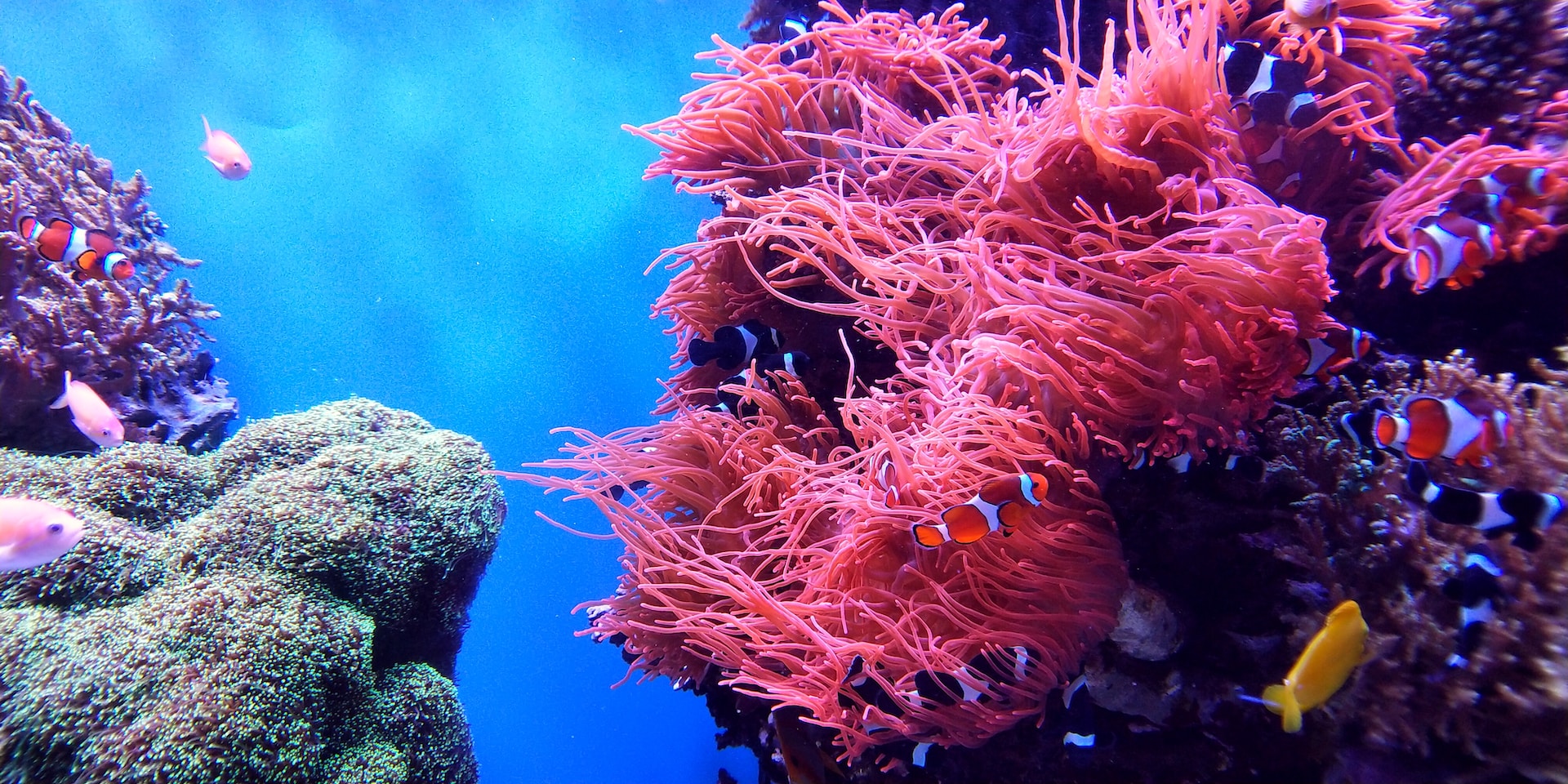Charting a new course for coral conservation
Coral reefs, nature’s vivid tapestries beneath the waves, play a pivotal role in marine ecosystems, supporting a staggering 25 percent of all marine species. Their importance resonates not only through the richness of life they sustain but also in their economic value, estimated at up to US$9.9 trillion annually. However, their survival hangs in the balance, with a 14 percent decline since 2009 and projections pointing to the potential loss of 90 percent of the world’s remaining reefs by 2050.
In response to this pressing challenge, we have launced the Coral Reef Breakthrough. The initiative’s mission is to secure the future of at least 125,000 km2 of shallow-water tropical coral reefs. If we secure an investment of over US$12 billion, our objective is to strengthen the resilience of over half a billion people globally by 2030, ensuring they continue to benefit from these vital marine strongholds.
By setting measurable and science-based targets, the Coral Reef Breakthrough invites public and private actors to rally behind a shared vision, ensuring the survival and prosperity of coral reefs for generations to come.
Beyond individual goals, our efforts align with a broader global commitment, directly contributing to Sustainable Development Goals, particularly SDG14. Moreover, our initiative stands to reinforce the Ocean and Coastal Impact System targets of the Sharm-El Sheikh Adaptation Agenda and fortify the Kunming-Montreal Global Biodiversity Framework’s aspirations.
The urgency is evident, but so is the potential. We invite public and private stakeholders worldwide to endorse, support, and join the Coral Reef Breakthrough, making a decisive stand for the future of our oceans and the countless lives they impact.
 ×
×
At the 2021 United Nations Climate Change Conference (COP26), 45 world leaders, whose governments collectively represent over 70% of global GDP, launched the 2030 Breakthrough Agenda, aiming to deliver near-term significant change across every sector of the global economy in order to achieve a resilient, zero carbon future in time.
Within the UN Climate Change High-Level Champion mandate, the “2030 Breakthroughs” pinpoint specific near term targets where greater contributions are needed to galvanize public and private action. Each Breakthrough establishes an accountability framework for annual review and a dedicated action cycle to track developments towards a specific set of goals for the selected priority.
The first set of government-led Breakthrough goals launched at COP26 (known as the ‘Glasgow Breakthroughs’) covered five key emitting sectors that together represent more than 50% of global emissions. At COP27, the Sharm-El-Sheikh Adaptation Agenda was launched as the solutions agenda to the Priority Actions, also promoting climate-resilient development.
The Climate Champions’ Breakthrough mandate covers different themes including Human Settlements, Energy, Industry, Land, Ocean, Water, Transport, and Carbon Removals. The Coral Reef Breakthrough will sit within the mandate for Ocean, alongside the Mangrove Breakthrough.
The Coral Reef Breakthrough aims to secure the future of at least 125,000 km2 of shallow-water tropical coral reefs with investment of at least US$12 billion to support the resilience of more than half a billion people globally by 2030.
In addition to broad-based climate action, the Coral Reef Breakthrough will be achieved through:
- Action point 1: Stop drivers of loss: Mitigate local drivers of loss including land-based sources of pollution, destructive coastal development, and overfishing.
- Action point 2: Double the area of coral reefs under effective protection: Bolster resilience-based coral reef conservation efforts by aligning with and transcending global coastal protection targets including 30by30.
- Action point 3: Accelerate Restoration: Assist the development and implementation of innovative solutions at scale and climate smart designs that support coral adaptation to impact 30% of degraded reefs by 2030.
- Action point 4: Secure investments of at least USD 12 billion by 2030 from public and private sources to conserve and restore these crucial ecosystems.
 ×
×
For more than one billion people whose daily lives are inextricably linked with life below water, healthy coral reefs are critical sources of sustainable food, livelihoods and income generation, protection from storm surges, medicinal properties, and significant cultural heritage. Coral reefs are essential to the security, resilience, and climate adaptation of climate-vulnerable nations, particularly those situated in low-lying island states.
The intersection of climate change and biodiversity loss has emphasised the need for increased international cooperation and action to conserve, sustainably manage, and restore coral reefs. Coral reefs exist in more than 100 countries and territories and, whilst they cover less than 1% of the seafloor, they support at least 25% of marine life and provide ecosystem services valued up to US$9.9 trillion annually (Costanza et al. 2014).
The climate crisis and other local anthropogenic stressors, such as land and marine pollution, unsustainable tourism and coastal development, overfishing and other harmful extractive activities, pose existential threats to coral reef survival. This combination of threats have already resulted in the loss of more than half of the world’s coral reefs. The world has lost 14 percent of the coral on its coral reefs since 2009, and despite being a cornerstone of marine health and climate resilience, current projections demonstrate the risk of 90 percent of the world’s remaining coral reefs disappearing by 2050 (GCRMN 2020). The window for protecting these ecosystems is closing rapidly.
Coral Reef Breakthrough launches to prevent extinction of one of the world’s most threatened, yet most valuable and most biodiverse ecosystems
The UN Climate Change High-level Champions, the International Coral Reef Initiative (ICRI), and the Global Fund for Coral Reefs (GFCR) have launched the “2030 Coral Reef Breakthrough” in a bid to secure the future of at least 125,000 km2 of these precious ecosystems.
READ MOREFirst and only global blended finance instrument dedicated to coral reefs launches
A coalition of public and private partners has launched the Global Fund for Coral Reefs (GFCR) with the ambition to mobilise USD$625 million for coral reef conservation over the next decade.
READ MOREWelcoming the Global Fund for Coral Reefs to the Race to Resilience
H.E Ms Razan Al Mubarak, President of the IUCN and UN Climate Change High-Level Champion for COP28 welcomes the Global Fund for Coral Reefs as a partner to the Race to Resilience.
READ MOREIf we want to meet the Paris Agreement, we must overhaul how we manage the ocean
As we head towards COP26, governments need to recognize the importance of the ocean in delivering the Paris Agreement, argues Ørsted Chairman, Thomas Thune Andersen.
READ MORE



